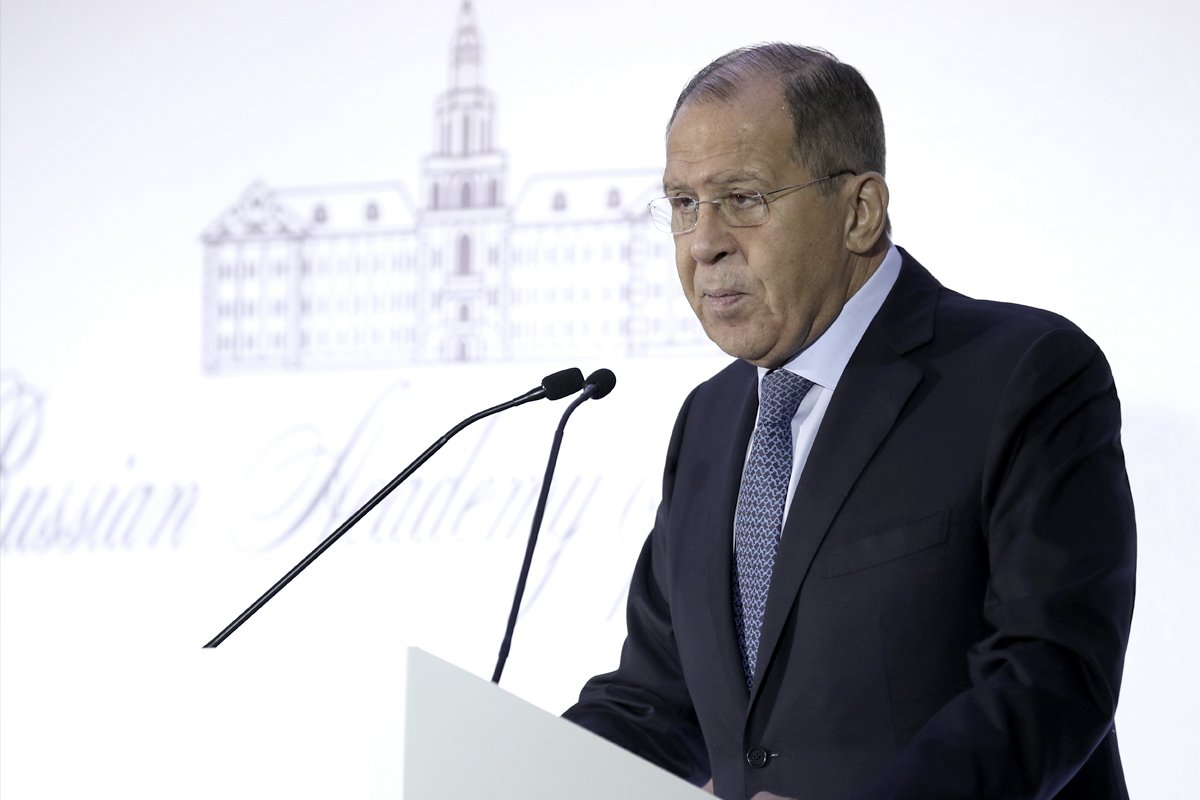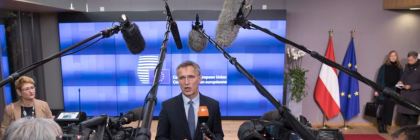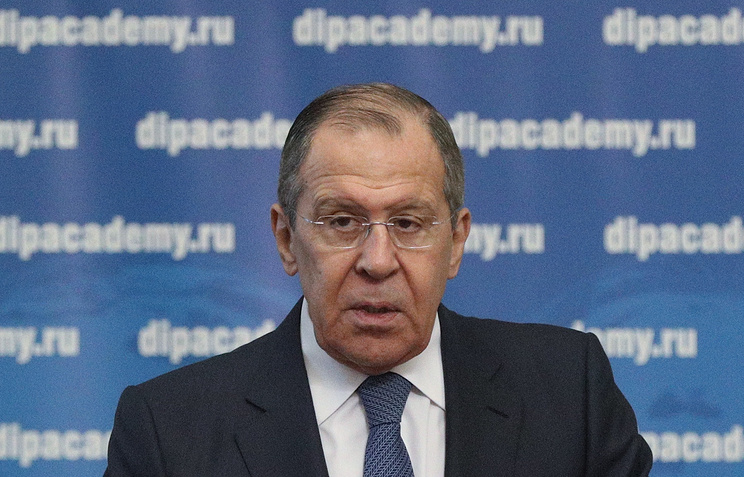angelburst29
The Living Force
11.27.2018 - Russia seeks to restore dialogue with NATO, Lavrov says
Russia seeks to restore dialogue with NATO, Lavrov says

"During the talks we paid enough attention to the situation in the Euro-Atlantic Region, including Russia’s relations with the EU and NATO. Both relations have been frozen," Lavrov said. "We confirmed that we are interested in resuming full-fledged contacts, especially between the military."
"It seemed to me that the French colleagues share this stance," the foreign minister said.
November 26, 2018 - NATO head urges Russia to free Ukrainian sailors and ships
NATO head urges Russia to free Ukrainian sailors and ships | Reuters

BRUSSELS - NATO head Jens Stoltenberg urged Russia on Monday to release Ukrainian navy ships and sailors seized over the weekend near Crimea, saying there was no justification for Moscow’s actions.
Ukraine has accused Russia of military aggression and puts its armed forces on full combat alert after Russia on Sunday fired on and then captured the three ships and 24-strong crew in the Kerch Strait, which links the Black Sea with the Azov Sea.
Kiev has urged its Western allies to consider further sanctions against Moscow. Russia in its turn has accused Ukraine of plotting with the West to provoke a crisis.
“We saw that Russia used military force against Ukraine in an open and direct way,” Stoltenberg told a news conference after emergency talks of the Western military alliance held at the request of Ukraine, which is not a NATO member.
“All allies expressed full support for Ukraine’s territorial integrity and sovereignty,” he added. “There is no justification for the use of military force against Ukrainian ships and naval personnel so we call on Russia to release immediately the Ukrainian sailors and ships it seized yesterday.”
Stoltenberg said Russia should also allow all commercial vessels full access to Ukrainian ports.
He cited economic sanctions already imposed by the West on Russia over its 2014 annexation of Ukraine’s Crimea peninsula and its support for separatist rebels battling Kiev’s forces in eastern Ukraine.
“We are following and monitoring the situation very closely and we are constantly assessing what more we can do because Russia has to understand that its actions have consequences.”
“This is escalating the situation in the region and it confirms a pattern of behavior which we have seen over several years...,” he added.
November 13, 2018 - Merkel favorable of European army as “NATO supplement”
Merkel favorable of European army as “NATO supplement”

While delivering her speech on the ‘Future of Europe‘ the German Chancellor Angela Merkel shared her vision on the future of the European defense with the Members of the European Parliament in Strasbourg Plenary session.

[URL='https://twitter.com/europarlAV']EP Audiovisual ✔ @europarlAV
https://twitter.com/europarlAV/status/1062360483313958912
#FutureOfEurope debate w/ #AngelaMerkel, German Federal Chancellor: LIVE REPLAY Opening statement by #AngelaMerkel https://multimedia.europarl.europa.eu/en/debate-on-the-future-of-europe-opening-statement-by-angela-merkel-german-federal-chancellor-_I162933-V_rv …

Debate on the Future of Europe: opening statement by Angela MERKEL, German Federal Chancellor...
EP Plenary session Debate with Angela MERKEL, German Federal Chancellor on the Future of Europe during the plenary session in Strasbourg (12-15/11/2018)
multimedia.europarl.europa.eu
Chancellor proposed the organization of the EU security council and operational forces to be able to act swiftly in performing mandated missions outside the EU.
[URL='https://twitter.com/Nigel_Farage'] [/URL]
[/URL]
[URL='https://twitter.com/Nigel_Farage']Nigel Farage ✔ @Nigel_Farage
https://twitter.com/Nigel_Farage/status/1062363881425768449
Merkel has just called for an EU Army. I’m about to give my thoughts to the European Parliament. http://www.europarl.europa.eu/plenary/en/home.html …
10:17 AM - Nov 13, 2018
While debating with the Chancellor Merkel Future of Europe, MEP Nigel Farage (UKIP) dabbed the idea of organization the EU army as a construction of an “Empire” and “militarized union”, “expanding to the East“.
Treaty establishing the European Defence Community has remained un-ratified since the day it had been signed on 27 May 1952 by six countries – West Germany, France, Italy, and the Benelux. The treaty would have created a European Defence Community (EDC) with a pan-European defence force. The treaty failed to pass ratification in the French parliament – National Assembly, and consequently never entered into force.
[/URL][/URL]
Russia seeks to restore dialogue with NATO, Lavrov says

"During the talks we paid enough attention to the situation in the Euro-Atlantic Region, including Russia’s relations with the EU and NATO. Both relations have been frozen," Lavrov said. "We confirmed that we are interested in resuming full-fledged contacts, especially between the military."
"It seemed to me that the French colleagues share this stance," the foreign minister said.
November 26, 2018 - NATO head urges Russia to free Ukrainian sailors and ships
NATO head urges Russia to free Ukrainian sailors and ships | Reuters

BRUSSELS - NATO head Jens Stoltenberg urged Russia on Monday to release Ukrainian navy ships and sailors seized over the weekend near Crimea, saying there was no justification for Moscow’s actions.
Ukraine has accused Russia of military aggression and puts its armed forces on full combat alert after Russia on Sunday fired on and then captured the three ships and 24-strong crew in the Kerch Strait, which links the Black Sea with the Azov Sea.
Kiev has urged its Western allies to consider further sanctions against Moscow. Russia in its turn has accused Ukraine of plotting with the West to provoke a crisis.
“We saw that Russia used military force against Ukraine in an open and direct way,” Stoltenberg told a news conference after emergency talks of the Western military alliance held at the request of Ukraine, which is not a NATO member.
“All allies expressed full support for Ukraine’s territorial integrity and sovereignty,” he added. “There is no justification for the use of military force against Ukrainian ships and naval personnel so we call on Russia to release immediately the Ukrainian sailors and ships it seized yesterday.”
Stoltenberg said Russia should also allow all commercial vessels full access to Ukrainian ports.
He cited economic sanctions already imposed by the West on Russia over its 2014 annexation of Ukraine’s Crimea peninsula and its support for separatist rebels battling Kiev’s forces in eastern Ukraine.
“We are following and monitoring the situation very closely and we are constantly assessing what more we can do because Russia has to understand that its actions have consequences.”
“This is escalating the situation in the region and it confirms a pattern of behavior which we have seen over several years...,” he added.
November 13, 2018 - Merkel favorable of European army as “NATO supplement”
Merkel favorable of European army as “NATO supplement”

While delivering her speech on the ‘Future of Europe‘ the German Chancellor Angela Merkel shared her vision on the future of the European defense with the Members of the European Parliament in Strasbourg Plenary session.

[URL='https://twitter.com/europarlAV']EP Audiovisual ✔ @europarlAV
https://twitter.com/europarlAV/status/1062360483313958912
#FutureOfEurope debate w/ #AngelaMerkel, German Federal Chancellor: LIVE REPLAY Opening statement by #AngelaMerkel https://multimedia.europarl.europa.eu/en/debate-on-the-future-of-europe-opening-statement-by-angela-merkel-german-federal-chancellor-_I162933-V_rv …

Debate on the Future of Europe: opening statement by Angela MERKEL, German Federal Chancellor...
EP Plenary session Debate with Angela MERKEL, German Federal Chancellor on the Future of Europe during the plenary session in Strasbourg (12-15/11/2018)
multimedia.europarl.europa.eu
Chancellor proposed the organization of the EU security council and operational forces to be able to act swiftly in performing mandated missions outside the EU.
[URL='https://twitter.com/Nigel_Farage']
 [/URL]
[/URL][URL='https://twitter.com/Nigel_Farage']Nigel Farage ✔ @Nigel_Farage
https://twitter.com/Nigel_Farage/status/1062363881425768449
Merkel has just called for an EU Army. I’m about to give my thoughts to the European Parliament. http://www.europarl.europa.eu/plenary/en/home.html …
10:17 AM - Nov 13, 2018
While debating with the Chancellor Merkel Future of Europe, MEP Nigel Farage (UKIP) dabbed the idea of organization the EU army as a construction of an “Empire” and “militarized union”, “expanding to the East“.
Treaty establishing the European Defence Community has remained un-ratified since the day it had been signed on 27 May 1952 by six countries – West Germany, France, Italy, and the Benelux. The treaty would have created a European Defence Community (EDC) with a pan-European defence force. The treaty failed to pass ratification in the French parliament – National Assembly, and consequently never entered into force.
[/URL][/URL]





